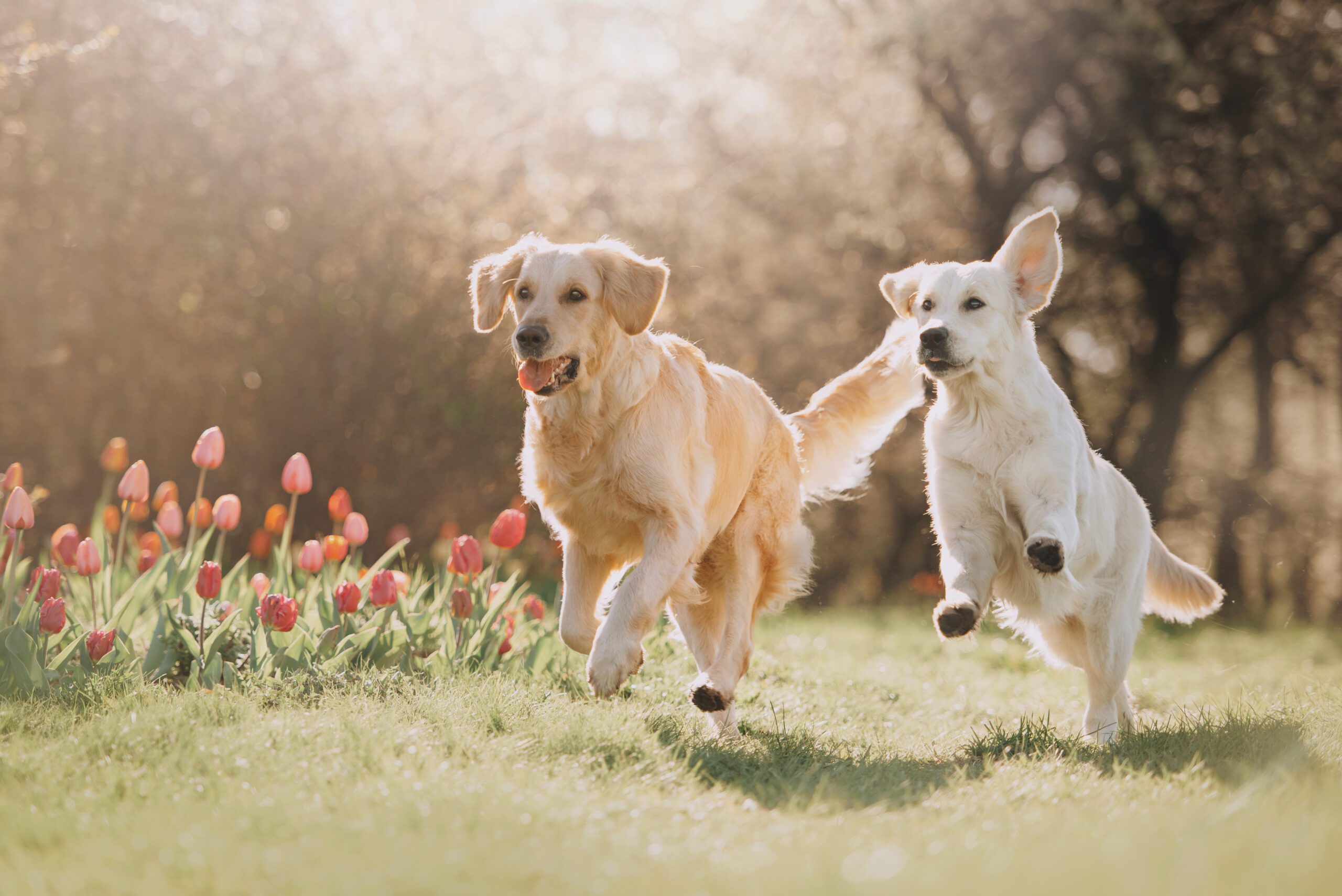Spring is a beautiful time of year when nature starts to wake up after a long, bitter winter. Flowers start to bloom, trees start to bud, and the grass starts to grow. However, as gorgeous as spring plants and flowers are, they can be dangerous to our furry friends. Many plants that are commonly found in gardens and outdoor spaces can be toxic to pets, and it’s important as a pet owner to know which ones to avoid.
Here are some of the most common spring plants and flowers that are toxic to pets:
- Daffodils
Daffodils are a popular spring flower that many people plant in their gardens. They are known for their bright yellow color and trumpet-shaped blooms. However, all parts of the daffodil plant are toxic to pets, especially dogs. The bulbs contain the most toxins and can cause vomiting, diarrhea, abdominal pain, and even heart problems if ingested in large quantities.
- Tulips
Tulips are another popular spring flower that is often planted in gardens and used in floral arrangements. However, like daffodils, all parts of the tulip plant are toxic to pets, especially dogs. The toxins in tulips can cause vomiting, diarrhea, drooling, and even depression if ingested in large quantities.
- Hyacinths
Hyacinths are beautiful spring flowers that come in a variety of colors, including pink, blue, and purple. However, the bulbs of hyacinths contain toxins that can cause vomiting, diarrhea, and other gastrointestinal issues if ingested by pets. The toxins can also cause skin irritation if pets come into contact with the plant.
- Lilies
Lilies are a popular flower for Easter and springtime celebrations, but they are extremely toxic to cats. Even a small amount of the plant can cause kidney failure in cats, and it’s important to keep them away from any part of the plant, including the leaves, stems, flowers, and pollen. If you have cats, it’s best to avoid lilies altogether.
- Azaleas
Azaleas are a popular shrub that blooms in the spring with beautiful pink, white, and purple flowers. However, all parts of the azalea plant are toxic to pets, especially dogs. The toxins in azaleas can cause vomiting, diarrhea, drooling, and even seizures if ingested in large quantities.
- Rhododendrons
Rhododendrons are another type of shrub that blooms in the spring and is popular in many gardens. However, like azaleas, all parts of the rhododendron plant are toxic to pets, especially dogs. The toxins in rhododendrons can cause vomiting, diarrhea, drooling, and even seizures if ingested in large quantities.
- Easter lilies
Easter lilies are a specific type of lily that is often given as a gift during the Easter holiday. However, like other types of lilies, Easter lilies are extremely toxic to cats and can cause kidney failure even in small amounts. If you have cats, it’s best to avoid Easter lilies altogether.
- Crocuses
Crocuses are small, colorful flowers that bloom in the early spring. However, the bulbs of crocuses contain toxins that can cause vomiting, diarrhea, and even organ failure in pets if ingested in large quantities.
- Irises
Irises are a popular garden flower that comes in a variety of colors, including purple, blue, and white. However, all parts of the iris plant are toxic to pets, especially dogs. The toxins in irises can cause vomiting, diarrhea, drooling, and even depression if ingested in large quantities.
- Sago palms
Sago palms are a popular indoor plant that is also sometimes used as a landscaping plant in warm climates. However, all parts of the sago palm plant are toxic to pets, especially dogs. The toxins in sago palms can cause vomiting, diarrhea, seizures, liver failure, and even death if ingested.
Preventing Toxicity
The best way to prevent toxicity from spring plants and flowers is to keep them out of reach of pets. This may mean keeping plants in a fenced-off area, hanging them from the ceiling, or placing them on high shelves. It’s also important to educate yourself about the plants and flowers in your home and yard to ensure that they are safe for pets.
If you suspect that your pet has ingested a toxic plant or flower, it’s important to contact your veterinarian immediately. They may recommend inducing vomiting or providing supportive care, such as IV fluids or medications, to help your pet recover. In some cases, hospitalization may be necessary.
Safe Flowers for Pets
If you’re looking to add some color to your home or garden this spring, here are the top 5 spring flowers that are safe for pets:
- Marigolds – Marigolds are a bright and colorful flower that is safe for pets. They are easy to grow and come in a variety of colors, including orange, yellow, and red.
- Petunias – Petunias are another popular flower that is safe for pets. They come in a variety of colors and can be grown in both hanging baskets and flower beds.
- Snapdragons – Snapdragons are a unique and colorful flower that is safe for pets. They come in a variety of colors and can add a pop of color to any garden.
- Zinnias – Zinnias are a popular garden flower that is safe for pets. They come in a variety of colors and can be grown in both pots and flower beds.
- Roses – Roses are a classic and beautiful flower that is safe for pets. They come in a variety of colors and can be grown in both pots and flower beds. It’s important to note that while roses are safe for pets, they do have thorns that can be dangerous if ingested or stepped on.
Spring plants and flowers can add a beautiful touch to your home and yard, but it’s important to be aware of which ones are toxic to pets. By keeping toxic plants out of reach and educating yourself about which plants are safe, you can help keep your pets safe and healthy. If you suspect that your pet has ingested a toxic plant, don’t hesitate to contact your veterinarian for help. With a little bit of knowledge and precaution, you and your pets can enjoy the beauty of spring without any worries.

